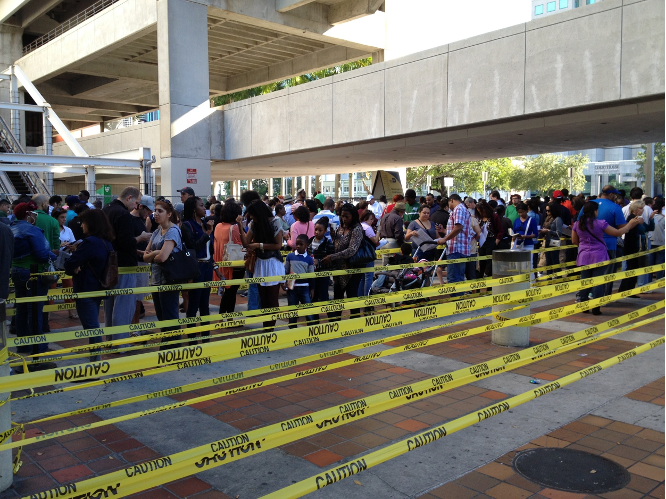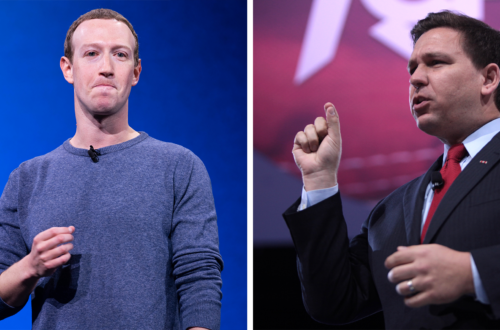The national effort by the Republican Party to significantly curtail states’ vote-by-mail processes has made its legislative debut in Florida. On March 10, Florida lawmakers advanced a bill titled SB-90 under the auspices of the title “Election Administration.”
The bill is being pushed by state Sen. Dennis Baxley, R-Ocala, who has recently made headlines across the state for another bill that would reduce Florida’s Bright Futures scholarship for certain majors.
According to Broward County’s Supervisors of Elections Joe Scott, D-Broward, the new vote-by-mail legislation in Florida is tantamount to “massive voter suppression.”
In an interview with TPM, Baxley defended his bill, positing that it would reform election laws and guarantee that Florida voters would “start at the same starting line.” The bill has received the backing of Gov. Ron DeSantis, who argued recently that ensuring “ballot integrity” must be a priority for lawmakers despite his stance last November when he proclaimed that Florida was a model of how elections should be run.
The Senate Committee on Rules’ version of the bill found massive overhauls in comparison to previous election standards, and the recent municipality elections’ vote-by-mail process: the bill mandates an additional disclosure of either the voter’s Florida driver license number or their last four SSN digits alongside the additional matching of the voter certificate signature with the voter registration signature.
The bill also bans “authorized secure” drop boxes at early voting locations and prohibits the return of vote-by-mail ballots through “secure” drop boxes, which was recently redacted. Furthermore, receipts of vote-by-mail ballots for the 2022 primary and general elections must be purged from voter rolls and voters will be required to reregister. The bill’s harshest clause would make it a first-degree misdemeanor to “distribute, order, request, collect, deliver, or otherwise physically possess” vote-by-mail ballots of anyone outside their immediate family.
SB-90 would additionally delay the canvassing of vote-by-mail ballots in Florida from “the 22nd day before the election” until “the completion of the public testing of automatic tabulating equipment,” echoing debunked claims that former President Trump’s votes had been switched over to President Joe Biden.
The delay would shorten the available time to canvass the vote-by-mail ballots, a process that was responsible for Florida’s swift counting of nearly 4.9 million vote-by-mail ballots. Florida has had its fair share of electoral crises, including 2012’s long lines and 2000’s “Hanging Chads” crisis, but none related to vote-by-mail canvassing. This change would increase the likelihood of a repetition of the 2020 mail-in ballot difficulties faced in other states since their election laws did not permit them to begin their canvassing until Election Day.
Contrary to Baxley’s assertion that the proposals are “not that big of a change,” the bill seems likely to have a drastic impact on voters — especially those who registered for the next cycle’s vote-by-mail ballots.
A recent study sponsored by the group All Voting is Local found that even despite improvement in the mail-in ballot curing efforts, there were “wide disparities between counties in the percentage of ballots initially rejected” and that “younger voters and minorities were more likely to have theirs tossed aside than older and white voters.” The director of the study and University of Florida political science professor Dan Smith believes that the current process of election administration should “in no way be moving in the other direction.”
A UF colleague of Smith’s, Michael McDonald, stated in much harsher terms on Twitter that these efforts constitute “the greatest rollback of voting rights in this country since the Jim Crow era.” Native Floridian and famed Miami Herald columnist Carl Hiaasen echoed similar sentiments, arguing that the Florida Republicans’ plan is simply to “minimize the Black vote.”
During a tense Committee on Governmental Oversight and Accountability hearing, Sen. Victor Torres Jr., D-Kissimmee, pressed Baxley to explain why, despite arguing that Florida had an “excellent, excellent conducted election,” Republicans are pushing SB-90, which is widely criticized by election supervisors. Baxley elaborated that the “safety measure” is designed to guard the ballots’ “chain of transfer from mischief or mayhem.”
The allusion to improper conduct in election administration echoes Trump’s claims of voter fraud that inspired the Capitol insurrection. Additionally, SB-90 is not Baxley’s first bill pertaining to election administration in Florida. Prior to the 2012 election, he “sponsored an overhaul of Florida voting laws” under the same pretense.
If passed, SB-90 would go into effect on July 1, just in time for the 2022 midterm elections. Baxley’s bill — and similar initiatives in Idaho and Texas — indicates that the politics of “Trumpism” will continue to hold sway in the Republican Party; particularly in the debate around voting access and rights.
Featured image: Three-hour line in Miami during the 2012 Presidential Election. Unmodified image by Phillip Pessar used under a Creative Commons license. (https://bit.ly/3em0Mn9)
Check out other recent articles from the Florida Political Review here.





